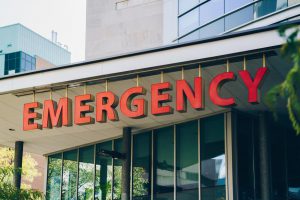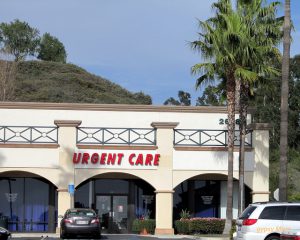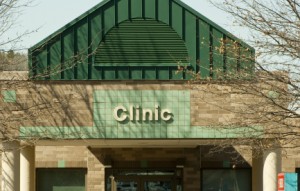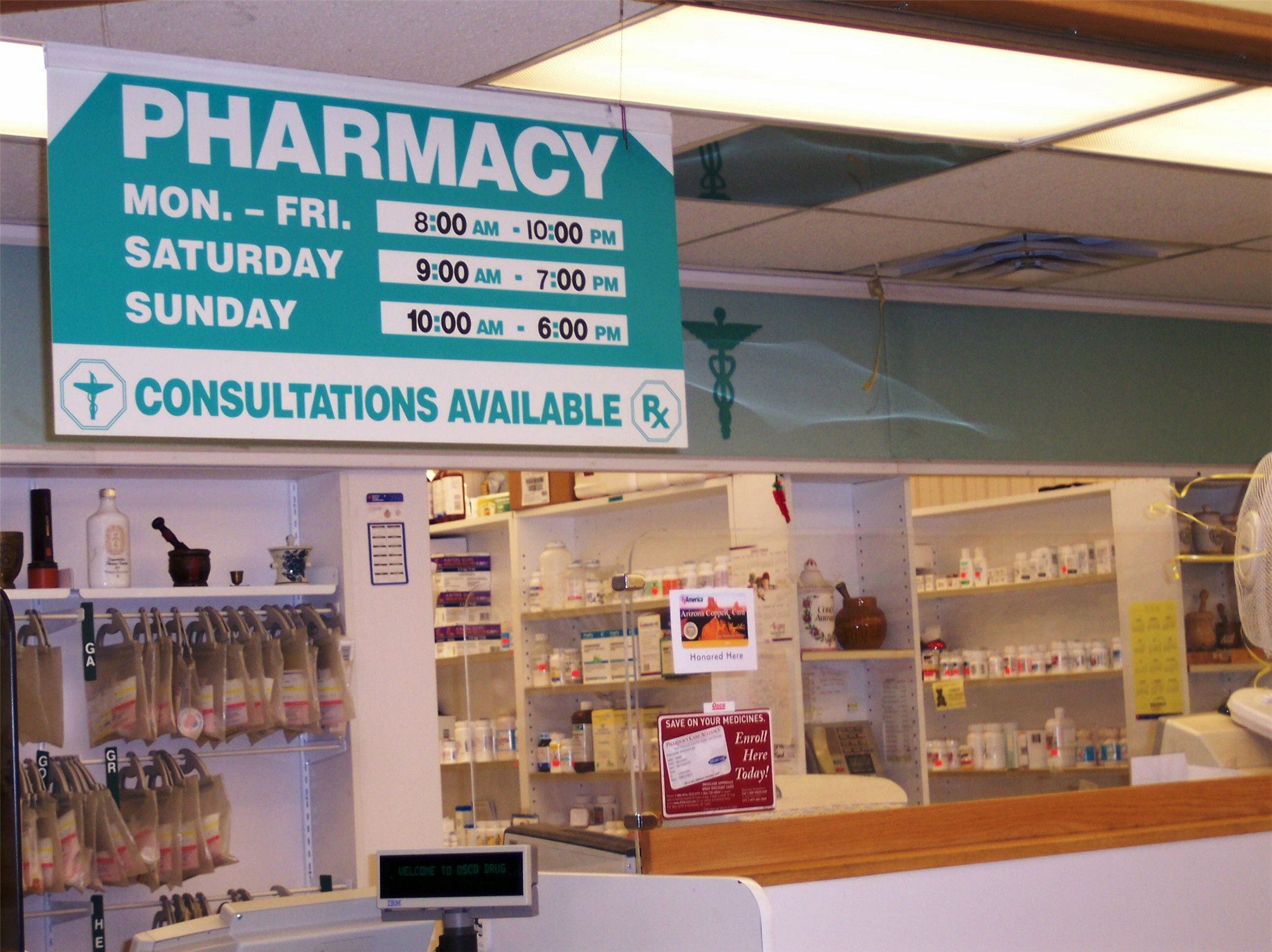This blog post originally appeared on Zaggocare.org
When you or a loved one is sick or injured, where should you go for medical care? Your primary care doctor? The emergency room (ER)? A retail clinic at your local pharmacy or big box store or an urgent care center? With so many options for care, it can be hard to know which is the best choice in your given circumstances. How should you choose between an ER, urgent care and retail clinic? Read on to learn what factors to consider when you or a loved one need care.
Should you go to the emergency room?

I think most of us know that in a real emergency, such as a suspected heart attack or stroke, or a bad accident, the emergency room is the place to be. But what about illnesses and accidents that don’t seem life-threatening? Should you go the ER? Maybe not.
Interestingly, one review found that only 40% of recent patients who visited the ER had a major health problem. The review found that patients visited the ER for a variety of reasons, including difficulty getting an appointment elsewhere, thinking/knowing other facilities were not open, or feeling it was the only facility that could treat them.
The advantages of the ER.
ERs have the skilled doctors and nurses, and the equipment, to handle serious illnesses and injuries.
Disadvantages of the ER.
A trip to the ER is expensive, time-consuming, and can lead to unnecessary tests and procedures.
The scoop on urgent care centers.

Urgent care centers are free-standing facilities that can treat patients with pressing, but non-life-threatening conditions. These centers usually have a medical doctor present, and often have labs and x-ray equipment on-site. Therefore, they can often handle minor emergency care that in the past required patients to go to an ER. Some of these centers can even handle minor surgical procedures.
When should you go to an urgent care center?
Conditions suited for urgent care centers include, but are not limited to:
- Accidents and falls
- Bleeding/cuts—not bleeding a lot but requiring stitches
- Breathing difficulties (i.e. mild to moderate asthma)
- Diagnostic services, including X-rays and laboratory tests
- Eye irritation and redness
- Fever or flu
- Minor broken bones and fractures (i.e. fingers, toes)
- Moderate back problems
- Severe sore throat or cough
- Skin rashes and infections
- Sprains and strains
- Urinary tract infections
- Vomiting, diarrhea or dehydration
Can you use urgent care centers for emergencies?
During an emergency health situation, it might be hard to decide if you should go to an urgent care center or an ER. Consider this general guideline: if you would feel comfortable seeing your primary care doctor for your emergency health issue, then you can go to an urgent care center. If not, go to the ER.
What are the advantages of urgent care centers?
There are many advantages of using an urgent care center instead of your primary care doctor:
- The clinics usually have extended hours, including nights and weekends.
- You don’t need an appointment.
- The large number of clinics can make it more convenient to get to than getting to your doctor’s office.
- As compared to ERs, you’re likely to see a doctor more quickly, for less money, at an urgent care center. But there may be unexpected expenses – see below for more information.
The disadvantages of urgent care centers.
There is no continuity of care at these centers, which is critical for those managing chronic or serious illnesses. The staff treating you will not know you or your medical history.
You might get a bill with an unexpected fee.
Many urgent care centers are owned by hospitals, which can lead to a surprising and expensive addition to your bill – a “hospital fee”. According to a Boston Globe article, hospitals across the country are commonly charging hospital fees for patients seen at their urgent care centers. The problem is, most patients don’t realize this before they receive care. These hospital fees can be several hundred dollars, in addition to the bill for the doctor, nurse practitioner, lab tests, etc. If you have insurance that requires you to pay a flat fee for urgent care visits, you can still receive a bill for several hundred dollars for the hospital fees. Your insurance company may pay a portion of this fee, but most likely you’ll have to pay a portion out of you own pocket.
What can you do? If you plan on using a hospital owned urgent care center, ask about their fees. The information should be available on their websites, or you can call and ask. And a call to your insurance company to determine what portion of this fee will be covered is a good idea as well. If you live in an area with several urgent care centers, I suggest you investigate the fees before you need services. You’ll save yourself time and money.
What about retail health clinics?
 Retail health clinics are located within retail stores, such as pharmacies and big box stores. Retail clinics are staffed by nurse practitioners and physician assistants, with no doctor present. They are not designed to address pressing issues. Instead, they are geared towards smaller health needs that patients can deal with at their convenience.
Retail health clinics are located within retail stores, such as pharmacies and big box stores. Retail clinics are staffed by nurse practitioners and physician assistants, with no doctor present. They are not designed to address pressing issues. Instead, they are geared towards smaller health needs that patients can deal with at their convenience.
You may worry about the quality of care, but studies show that patients with low-acuity problems receive the same caliber of care, if not better, as compared to going to the doctor’s office.
When should you go to a retail health clinic?
Retail health clinics are great for:
- Immunizations, such as the flu shot and shingles vaccine.
- Minor, uncomplicated illnesses, such as fevers, colds, sore throats, rashes and scrapes.
What are the advantages of retail health clinics?
There are many advantages of using a retail health clinic instead of seeing your primary care doctor, including:
- These clinics are open 7 days a week, including nights.
- Employees at retail clinics often do a better job at following care guidelines than doctors.
- In general, the nurse practitioner and/or physician assistant spends more time with patients (as compared to a doctor’s office), which can improve the experience for the patient.
The disadvantages of retail health clinics.
As with urgent care clinics, there is no continuity of care at retail health clinics.
Retail clinics might be too convenient.
Since it is so easy to get care at a retail health clinic, patients are getting medical care instead of “toughing it out” at home. RAND Corporation found that most visits (almost 60%) were for routine medical care that patients otherwise would not have sought – leading to an overall increase in the use of medical services.
Many patients choose the wrong option.
Many patients don’t understand the different levels of care between retail clinics, urgent care centers and emergency rooms, often leading patients to make the wrong choice, which can waste time and money. And cause frustration.
According to a 2017 CityMD survey, many don’t make the right choice when deciding between an emergency room or an urgent care center. The survey presented 8 health scenarios in which the patient wanted immediate care. The 2,000+ US adult respondents were asked if an ER or urgent care center was the best option for care in each scenario. Most respondents clearly understood the need to go to an ER for life-threatening health issues. However, many respondents wrongly chose the ER for many cases that could be treated at an urgent care center.
Talk to your primary care doctor about your options.
Ask your doctor now about the best options for you (and your family). Don’t wait until you are sick or injured to figure out where to go for care.
- If you are dealing with a chronic or serious illness, ask your doctor if it’s okay to use a retail clinic or urgent care center, and find out what circumstances would warrant a trip to an ER. Ask your doctor where to get care for disease-related symptoms or minor colds or injuries.
- Find out what conditions don’t require immediate attention, instead taking a “wait and see” approach.
- Ask your doctor if he/she has a relationship with a particular retail clinic or urgent care center – and if so, use these whenever possible.
Follow up is key!
Researchers found that medical providers are not following up on tests conducted in the emergency room between 1% – 75% of the time. Clearly, this lack of follow up can lead to serious health consequences, including missed or delayed diagnosis and even death.
Don’t let your health skip through the cracks. If you don’t get your test results before you leave the ER, urgent care center or retail clinic, find out how to get the results. Get the name and phone number of a person to call and find out when the results will be available. Mark your calendar so you won’t forget. Do not assume someone will reach out to you if the results indicate further care or testing is needed. In one study almost 30% of primary care doctors reported they personally missed abnormal test result alerts that led to delays in patient care.
Additionally, if you go to a retail clinic, urgent care center or ER, always ask the staff to forward the appointment information to your doctor(s). Since your doctors may not see this report, get a printed visit report and share it with each of your doctors. Furthermore, it’s always a good idea to let your primary care doctor know you were treated elsewhere. Not only can your doctor add the information to your record, he/she may recommend further testing or care.
About Zaggo:
 Roberta Carson started Zaggo, a non-profit organization to help patients and family caregivers manage illnesses and injuries, after her experience as caregiver for her teenage son Zachary during his 27-month battle with terminal brain cancer. Roberta realized patients and families urgently need practical, easy-to-use information and tools. Zaggo’s mission is to provide patients and families with the educational information, tools, and resources they need to become empowered, engaged, effective members of their medical teams for the best possible care. With an easy-to-use guide book and organizational tools, the ZaggoCare System is the only product to offer the comprehensive advice and tools needed to help patients and caregivers manage illness or injury. As a charitable organization, 100% of the profits from the sale of ZaggoCare are donated to innovative brain tumor research in memory of Zachary.
Roberta Carson started Zaggo, a non-profit organization to help patients and family caregivers manage illnesses and injuries, after her experience as caregiver for her teenage son Zachary during his 27-month battle with terminal brain cancer. Roberta realized patients and families urgently need practical, easy-to-use information and tools. Zaggo’s mission is to provide patients and families with the educational information, tools, and resources they need to become empowered, engaged, effective members of their medical teams for the best possible care. With an easy-to-use guide book and organizational tools, the ZaggoCare System is the only product to offer the comprehensive advice and tools needed to help patients and caregivers manage illness or injury. As a charitable organization, 100% of the profits from the sale of ZaggoCare are donated to innovative brain tumor research in memory of Zachary.




2 Comments
My favorite part of the article is where you mentioned that we don’t need to have an appointment before we visit urgent care clinics. I’ll be staying with my grandparents for three months and I’m afraid that they would have health concerns that need to be addressed immediately. I’ll definitely look for clinics around Ocean City, MD, that we can visit when the need for it arises.
It’s good to know that with urgent care centers, I would be able to see a doctor more quickly at a more cost-effective price. I was playing tennis with my kids earlier when I slipped. My husband believes I may have a broken ankle, so it would be wise to visit an urgent care center. Thanks!